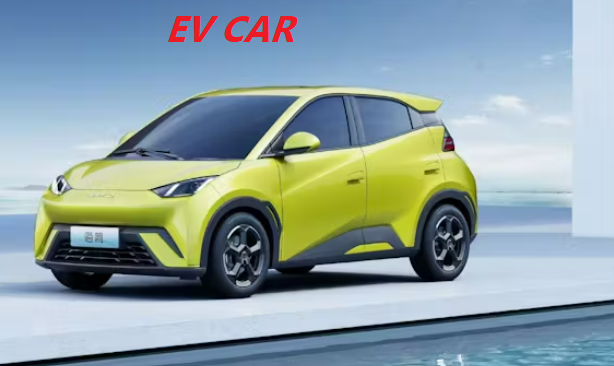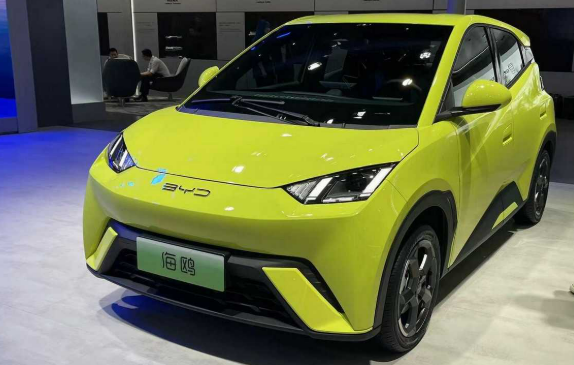Introduction
The question “Can you buy EV from China as an American?” Many car enthusiasts wonder if they can buy EV from China as an American, and the answer is not simple. has been raised more often in recent years as China’s electric vehicle manufacturers have grown rapidly. With lower prices, innovative technology, and attractive designs, Chinese EVs such as BYD, NIO, and XPeng have gained global recognition. However, the process of importing one into the U.S. has been observed as more complicated than most buyers initially expect.

Why Americans Want to Buy EV from China as an American
Chinese electric vehicles are viewed as appealing for multiple reasons:
- Competitive pricing, often 30–40% cheaper than U.S. EVs.
- Advanced battery technology, especially with BYD’s Blade Battery.
- Innovative interior tech with AI-driven infotainment systems.
- Modern designs with luxury features at affordable costs.
Example: The BYD Dolphin EV is priced at under $20,000 in China, compared to U.S. EVs often exceeding $35,000.
Key Specifications of Chinese EV Models
Here are a few notable EVs:
- BYD Dolphin: 265-mile range, Blade Battery, affordable pricing.
- XPeng P7: Autonomous driving features, AI integration.
- NIO ET7: Luxury sedan with battery swap technology.
Top Features Making Chinese EVs Attractive
- Long range at affordable price points.
- Advanced infotainment systems with voice control.
- Strong focus on sustainability with recyclable materials.
- Limited service network in the U.S. if imported independently.
U.S. Import Rules and Safety Standards
While buying directly from China may seem simple, the process is restricted by NHTSA and EPA safety regulations. Imported vehicles must comply with:
- Federal Motor Vehicle Safety Standards (FMVSS)
- U.S. Environmental Protection Agency (EPA) emissions and battery recycling rules
- National Highway Traffic Safety Administration (NHTSA) certifications
Tariffs, Taxes, and Additional Costs
Even if a Chinese EV meets safety rules, tariffs can be very high. Currently, imported vehicles from China face tariffs of up to 27.5%, plus port fees, customs duties, and local state registration costs.
Automaker Connectivity and Trade Barriers
Chinese automakers like BYD and NIO are planning entry into Europe and Latin America first because U.S. trade restrictions remain tight. Until bilateral trade relations improve, direct imports remain limited and costly.
Buying Process for Importing an EV from China
- Identify a model that complies with U.S. standards.
- Work with a registered importer licensed by NHTSA.
- Pay tariffs, customs, and shipping fees.
- Register and insure the vehicle at a U.S. DMV.
Alternatives in the U.S. Market
Instead of importing, Americans may consider affordable EVs already available in the U.S. such as:
- Chevy Bolt EUV
- Hyundai Kona EV
- Tesla Model 3 (price cuts in 2025)
FAQs
Q1: Can an American legally import a Chinese EV?
Yes, but it must comply with all U.S. safety and environmental standards, and the process is expensive.
Q2: Are Chinese EVs cheaper even after tariffs?
Usually no. After tariffs and shipping, the final cost often equals or exceeds U.S. EV models.
Q3: Which Chinese EV brands are most popular globally?
BYD, NIO, and XPeng are leading names expanding into global markets.
Q4: Is it worth importing a Chinese EV in 2025?
For most Americans, it is not practical due to tariffs, certification hurdles, and lack of after-sales support.
Conclusion
You can technically buy EV from China as an American So, can you buy EV from China as an American? Yes, but the process has been observed as complex, costly, and limited by trade barriers. While Chinese EVs are innovative, affordable, and sustainable, tariffs and U.S. safety standards make direct imports impractical for most buyers. Until automakers officially enter the U.S. market, it may be easier for American consumers to consider affordable EVs already available domestically.

